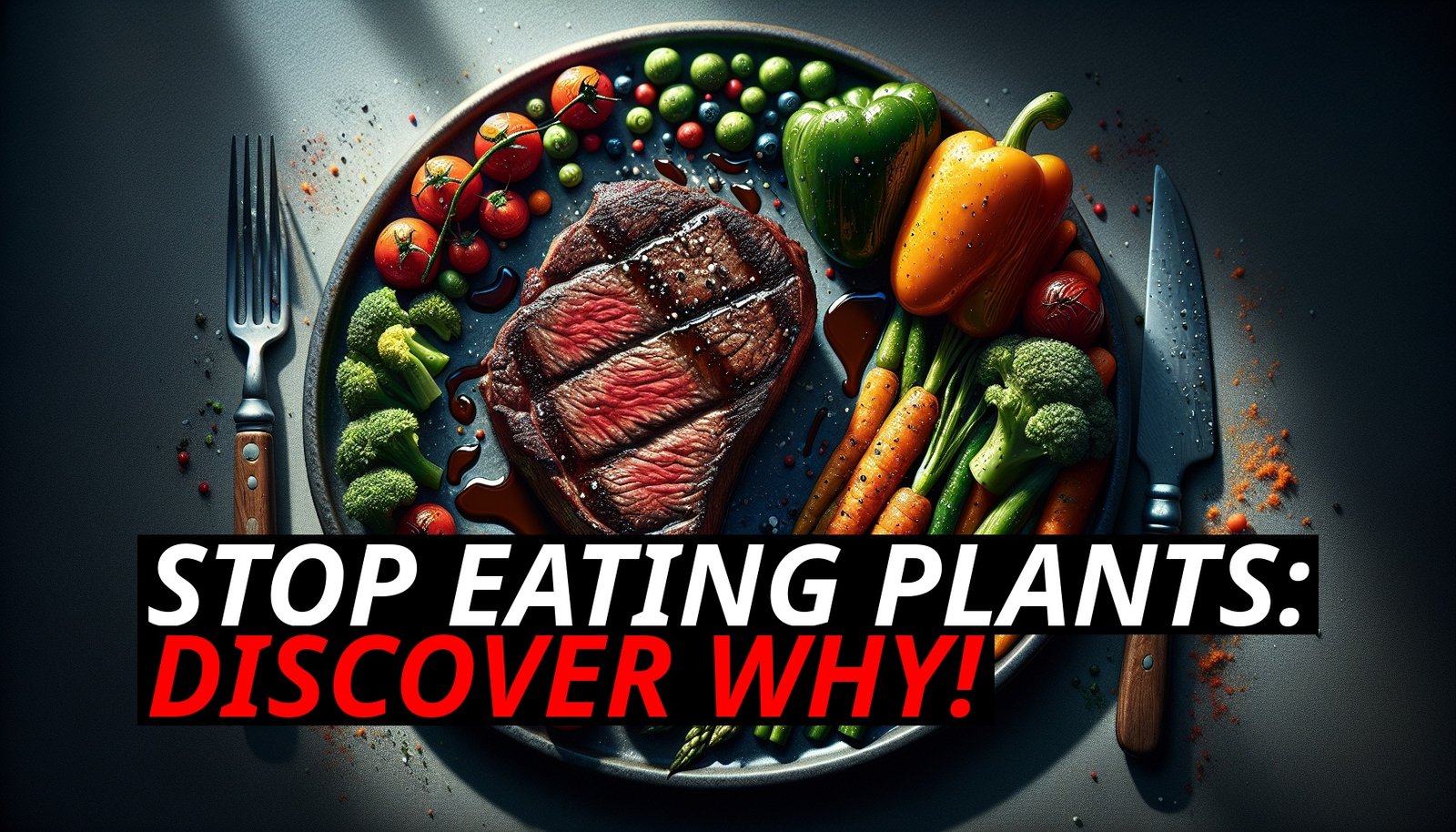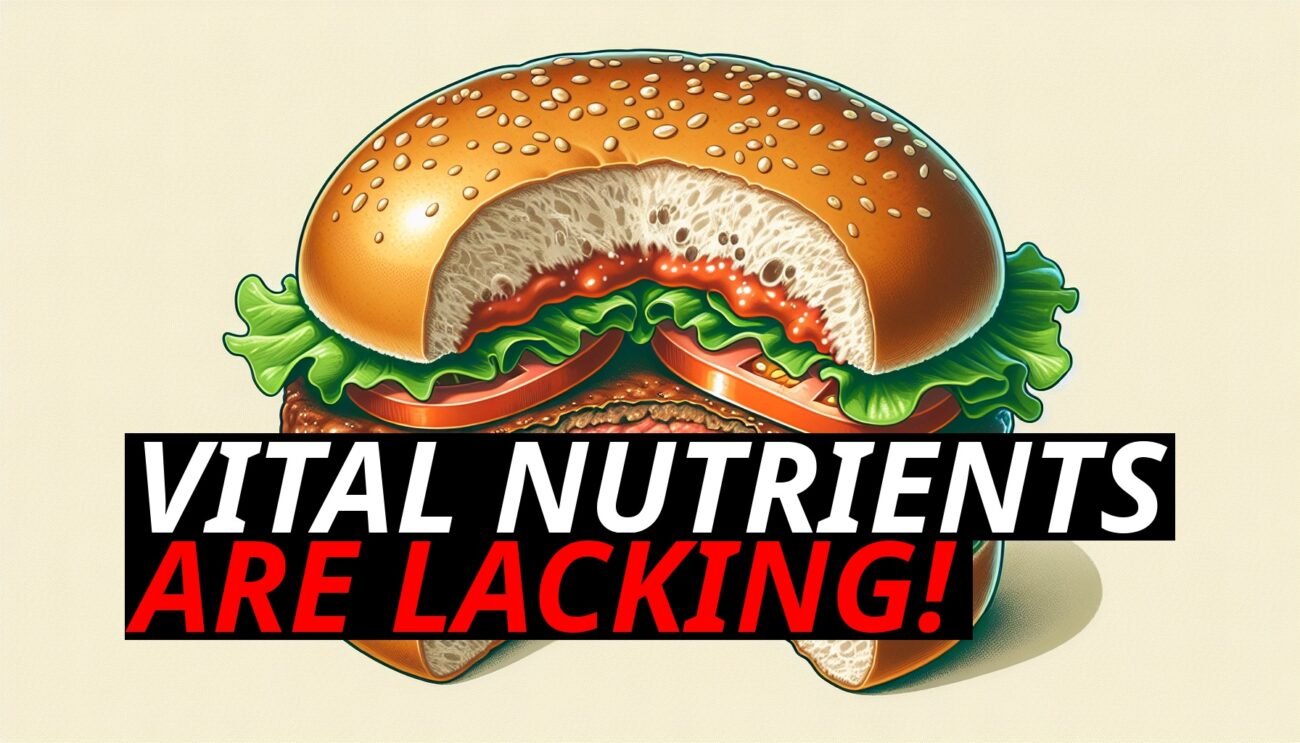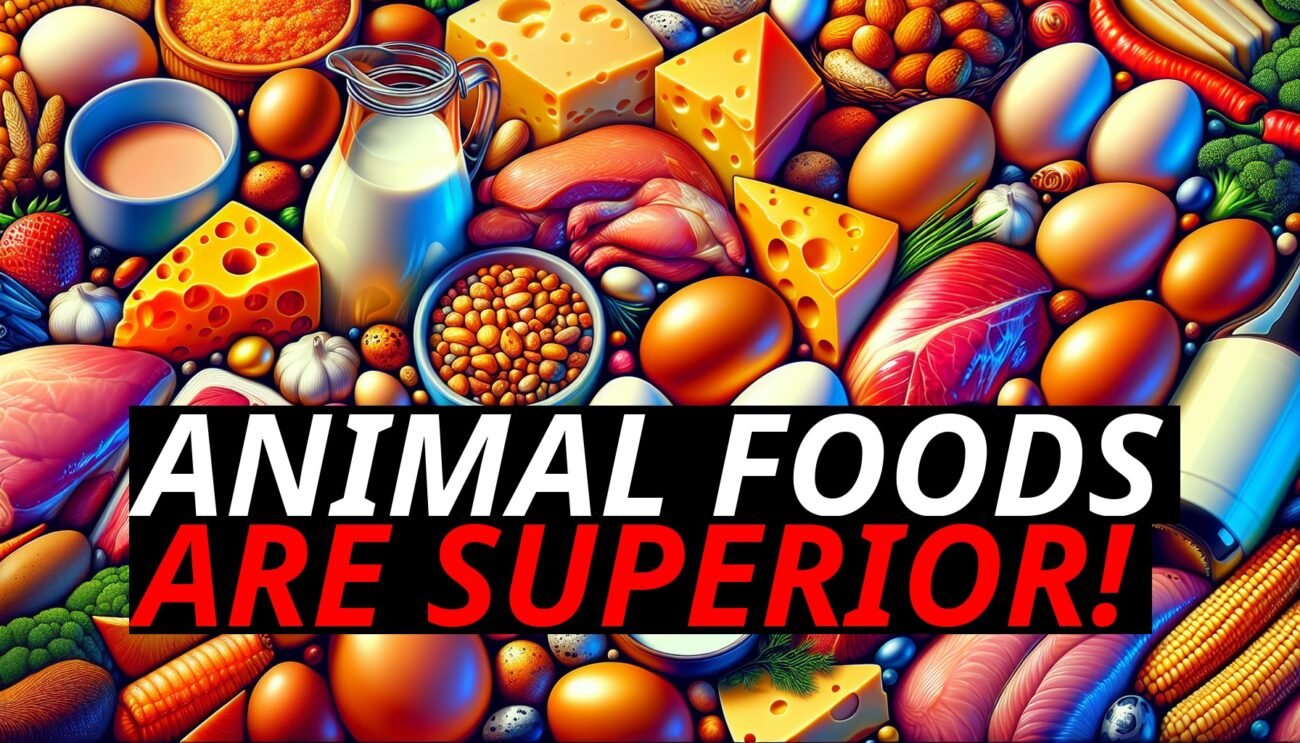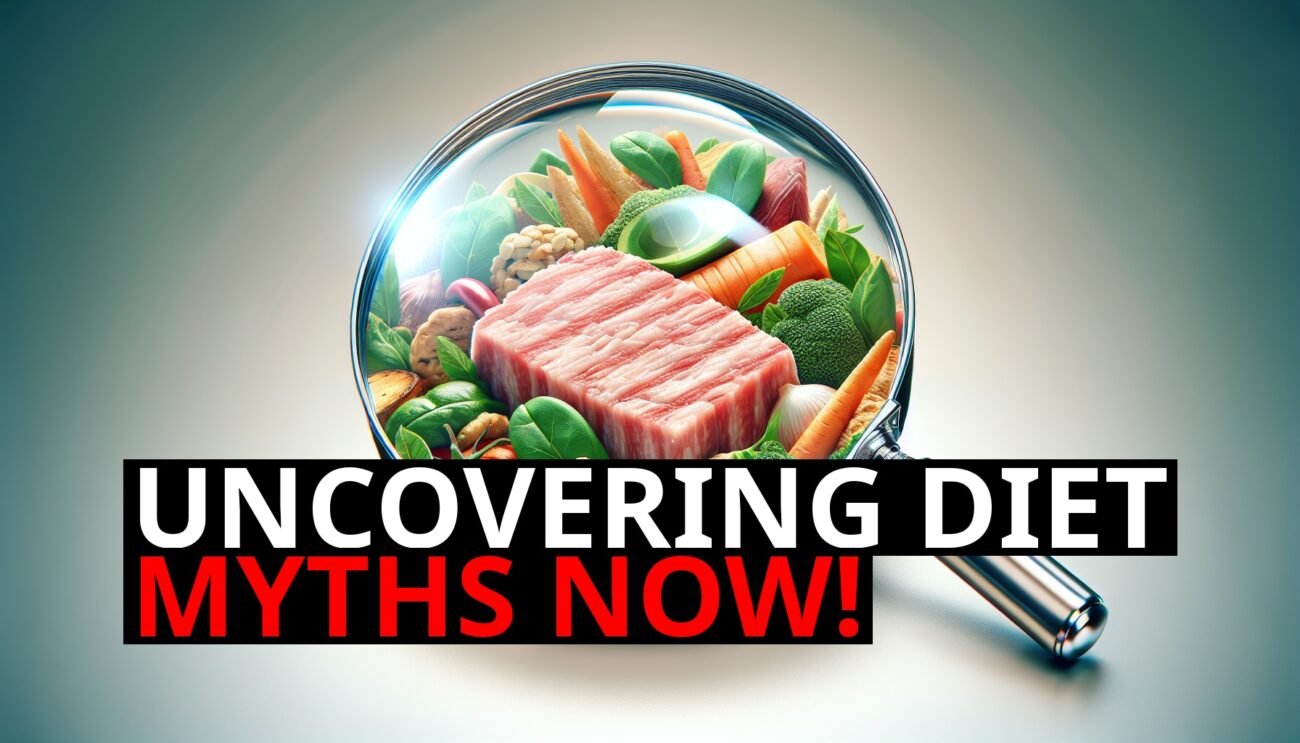For years, we’ve been told that a healthy diet must include a wide variety of vegetables. The idea of “eat your greens” has been drilled into us from a young age, and plant-based diets have gained momentum as the ultimate path to good health. But what if everything we’ve been told about vegetables is only part of the story? A growing number of people are discovering that cutting out vegetables entirely, and adopting a carnivore diet, makes them feel better than they ever did on a plant-based regimen. How can this be true? It turns out, there’s more to the story of plant-based health than meets the eye.
The Rise Of Plant-Based Diets: A One-Sided Narrative
The promotion of plant-based diets isn’t new. Over the last few decades, mainstream health advice has shifted toward encouraging more fruits, vegetables, and grains while discouraging meat and animal products. The narrative is simple: plants are good, meat is bad. Vegans and vegetarians are often held up as examples of optimal health, with claims that these diets reduce the risk of heart disease, cancer, and other chronic conditions.
But this one-sided narrative overlooks an important fact: not everyone thrives on plant-based diets. For some, the constant intake of vegetables can lead to digestive issues, nutrient deficiencies, and chronic inflammation. While many are told to double down on greens, an increasing number of people are finding that eliminating vegetables—and relying solely on animal-based foods—is the key to better health.
Why Some People Don’T Tolerate Vegetables Well
Vegetables may seem like health powerhouses, but for many, they can cause more harm than good. The reason? Certain plants contain anti-nutrients, compounds that can interfere with digestion and nutrient absorption. While some people can tolerate these compounds without issue, others experience digestive distress, fatigue, and other negative symptoms.
- Oxalates: Found in foods like spinach, kale, and almonds, oxalates can bind to minerals like calcium, forming crystals that may contribute to kidney stones or joint pain. For those sensitive to oxalates, plant-heavy diets can lead to chronic discomfort.
- Lectins: These naturally occurring proteins, present in beans, legumes, and grains, can damage the gut lining and interfere with nutrient absorption. For some, lectins contribute to leaky gut syndrome, leading to inflammation and autoimmune responses.
- Phytates: Often found in whole grains, nuts, and seeds, phytates bind to essential minerals like zinc, iron, and magnesium, preventing the body from absorbing them properly. Over time, this can lead to deficiencies, especially in those who rely heavily on plant-based foods.
For people sensitive to these compounds, the solution isn’t to eat more vegetables—it’s to cut them out entirely. That’s why so many people who adopt a carnivore diet, free of plant foods, experience remarkable improvements in their health.
The Carnivore Diet: Why Less Can Be More
The carnivore diet turns conventional wisdom on its head by eliminating all plant-based foods and focusing exclusively on animal products like meat, fish, eggs, and animal fats. And while it might seem extreme, many carnivores report feeling better without vegetables than they ever did on a plant-heavy diet. So, what’s behind this dramatic shift?
- Nutrient Density: Animal products are among the most nutrient-dense foods on the planet. Meat, eggs, and fish provide a full spectrum of essential vitamins and minerals—often in more bioavailable forms than plant foods. For example, the iron in red meat is heme iron, which is far more easily absorbed than the non-heme iron found in spinach or beans.
- Gut Health: By eliminating fibrous plant foods, many people find relief from digestive issues like bloating, gas, and IBS. While fiber is often praised for promoting gut health, it can irritate the digestive system in sensitive individuals. A carnivore diet allows the gut to heal, reducing inflammation and improving digestion.
- Stable Blood Sugar: Plant-based diets, especially those high in grains, beans, and starchy vegetables, can lead to blood sugar spikes and crashes. In contrast, the carnivore diet stabilizes blood sugar by eliminating carbohydrates and focusing on protein and fat, which provide a steady source of energy throughout the day.
- Satiation and Weight Loss: Animal products are naturally satiating. High in protein and healthy fats, they help people feel full and satisfied without the need for constant snacking or overeating. Many carnivores report that they lose weight effortlessly while eating nutrient-dense, full-fat foods.
Debunking The Myth Of Plant-Based Health
So, how did we get to a point where vegetables are viewed as essential to health, while animal products are seen as harmful? The answer lies in decades of dietary guidelines that emphasized the benefits of plant-based foods while downplaying the importance of nutrient-dense animal products.
Plant-based health was promoted in part due to concerns about saturated fat and cholesterol, which were once thought to cause heart disease. But recent studies have shown that these fears were overblown. In fact, saturated fats and cholesterol play important roles in brain function, hormone production, and cellular health. Meanwhile, the benefits of vegetables have often been exaggerated, especially for those who don’t tolerate them well.
This doesn’t mean that vegetables are bad for everyone—but it does mean that they aren’t the universal key to health that we’ve been led to believe. For some, cutting out plant-based foods entirely and focusing on high-quality animal products is the path to optimal well-being.
Real Stories: How Carnivores Found Freedom From Vegetables
Many who’ve transitioned from plant-based diets to carnivore share similar stories of dramatic transformations. Take Anna, who spent years struggling with bloating, fatigue, and joint pain despite following what she thought was a healthy, vegetable-rich diet. After switching to a carnivore diet, she noticed an almost immediate improvement—her digestive issues disappeared, her energy levels soared, and her joint pain faded away.
Then there’s Tom, who followed a vegan diet for years in an effort to improve his health, only to experience worsening symptoms of anxiety, brain fog, and nutrient deficiencies. After hearing about the carnivore diet, he decided to give it a try. Within weeks, his mental clarity returned, his anxiety lessened, and his bloodwork showed significant improvements in iron and B12 levels.
These stories aren’t unique. More and more people are discovering that for them, animal products are the foundation of true health, while vegetables may be holding them back.
Conclusion: Rethinking The Role Of Vegetables In Health
The myth of plant-based health has dominated dietary advice for decades, but as more people experience the benefits of the carnivore diet, it’s becoming clear that vegetables aren’t as essential as we once thought. For many, the answer to better health isn’t adding more greens to their plate—it’s removing them entirely.
Whether you’re considering a carnivore diet or simply want to explore new ways to feel your best, one thing is clear: what works for one person doesn’t necessarily work for another. The key is to listen to your body and find the foods that make you thrive—whether that includes vegetables or not.













